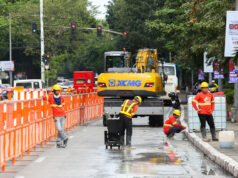SMALLER pharmaceutical companies are struggling to compete in a domestic market still dominated by multinational and consolidated companies, the Philippine Competition Commission (PCC) said.
A PCC policy note issued by Celia M. Reyes and Aubrey D. Tabuga said domestic manufacturers and traders find it difficult to achieve economies of scale with all but a few products, with smaller companies also less able to afford the costs of active pharmaceutical ingredients, testing, and marketing.
The country’s top 20 pharmaceutical corporations account for 73% of the market, they said, with one domestic company taking up a quarter of the total market. Multinational companies account for more than half of the market.
Companies have been consolidating or integrating, offering services ranging from manufacturing to distribution and marketing.
“This emerging trend needs to be monitored to prevent anti-competitive behavior and ensure that small manufacturers have access to the market,” they said.
The note’s authors said consolidation suggests a need to examine policies and processes that may hinder more competition. A significant decline in domestic manufacturing, they said, suggests that companies cannot compete under the current policy and regulatory environment.
“The government must explore avenues (for raising) the capacities of smaller industry players. Furthermore, close monitoring of current practices of retail drugstores in generic labeling of medicines could help deter anti-competitive behavior.”
The country also relies on pharmaceutical imports, and is falling behind its neighbors in exports.
Prices of originator drugs are also higher in the Philippines compared to those in Indonesia and India, although there is price variation within the country.
They said more consumer awareness is needed for generics, noting, however, that the alternatives may not be widely available at retail level. — Jenina P. Ibañez



